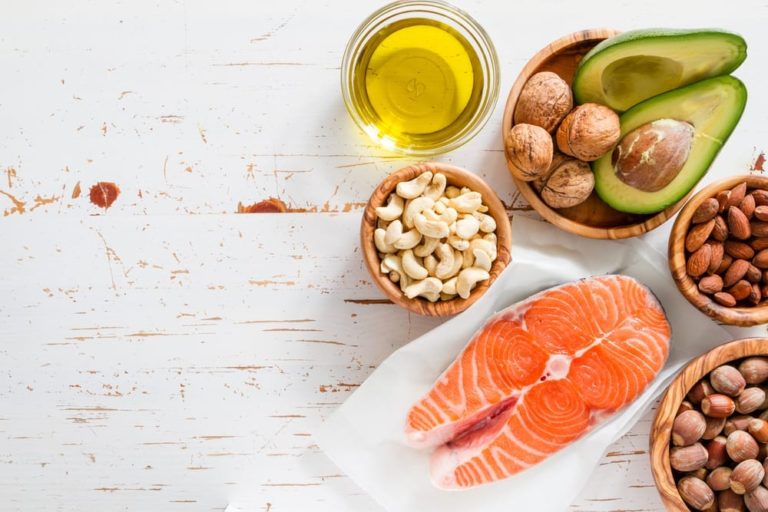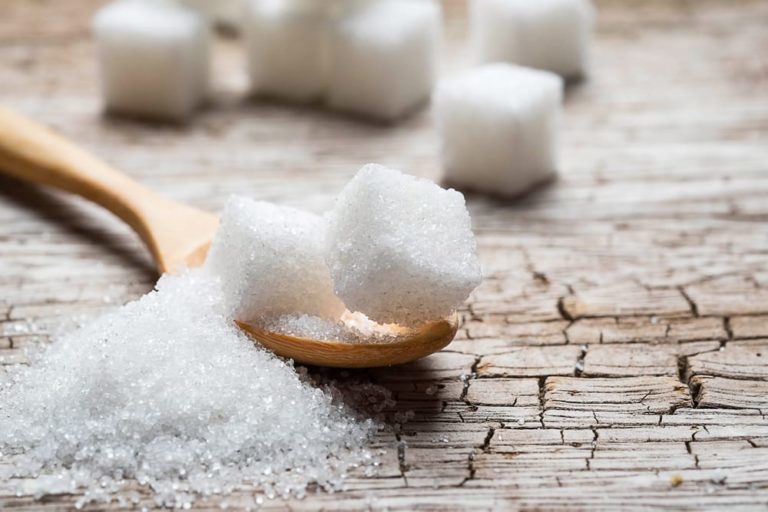1. you eat too much protein
The right amount of protein is important to maintain your muscle mass. Especially if you are maintaining a slight calorie deficit to lose weight slowly, you should watch your protein intake.
The highest quality sources are eggs, pastured beef, pastured lamb, organic poultry, organic pork, fish and seafood from organic aquaculture or sustainable wild catch. For athletes is also interesting pasture Whey without additives. Dairy products should play a minor role.
0.8-1.2 grams of protein per kg of body weight are absolutely sufficient. The exact values result depending on the activity and individual situation. Protein is a building material, not an energy supplier. Excess protein is converted to glucose. The 2 grams of protein recommended in many fitness circles is too much for a healthy diet. Such an amount should be ingested at most temporarily. A low carb high protein diet usually leads to severe cravings after a while.
When protein is broken down, toxic ammonia is released. To detoxify it, the urea cycle takes place in the liver. The non-toxic urea is then excreted via the kidneys. The organs usually cope well with this, but a permanent too high protein intake unnecessarily stresses the liver and kidney.
In addition, it is suspected that prolonged excessive protein intake increases inflammation levels . Chronic inflammation puts stress on the body and stress prevents effective weight loss.
2. you eat too little fat
For a long time, it was drummed into us: fat is bad, fat is dangerous. Afterwards, we were told: the carbohydrates are evil.
That is why many people have joined a low carb diet. At the same time, they still had the old fear of fat in their bones. So it became a low carb low fat diet.
A low carb low fat diet can lead to two mistakes. Either eat low fat, low carbohydrates and moderate amounts of protein. Or, you eat little fat, few carbohydrates and excessive amounts of protein.
The first variant most certainly leads to the fact that too few calories are consumed. You quickly reach 1,000-1,200 kcal per day, which is definitely not enough. For everyone. So little energy causes the body to be stressed, the metabolism slows down slightly and cravings increase. Either you lose weight due to malnutrition, or you give in to cravings. You don’t do yourself any favors with either. Drastic calorie reduction in any case means stress for the body and stress worsens weight loss.
But if you try to replenish the missing energy with protein, we end up back at point 1: Too much protein.
A moderate amount of fat is important: as fuel. For most people, it makes sense to reduce the amount of carbohydrates. You should not overdo it with the amount of protein. So clearly you need fat as an energy source. It is particularly important to pay attention to the right sources of fat.
Pasture butter, ghee from pasture butter, coconut oil and MCT oil are at the forefront here. Virgin olive oil, avocado oil, nuts, seeds, avocados and the fat from pastured meat and sea fish are also good sources. You should avoid cheap conventional dairy products, rapeseed oil, sunflower oil, clarified butter made from conventional milk and fatty cuts from factory farmed animals.











